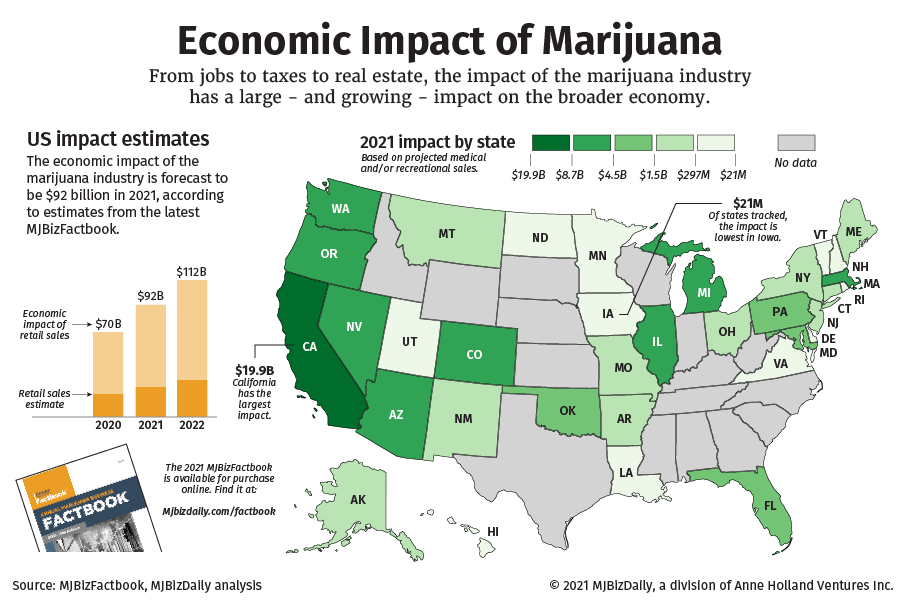The Lost National Treasure | The Bengal Bite 🐯
As bad as the “War on Drugs” has been, it’s actually been worse than most people realize. In fact, the drug war is an example of the worst kind of public policy mistake: one that does not accomplish its stated goals causes significant and lasting social harm (millions of lives destroyed), costs the country massive amounts of money, and prevents taxpayers from seeing the benefits of that money directed more productively elsewhere.
Doing something prevents you from doing something else. The choice to do anything is really the choice not to do all of the other things you could have done. So, not only did the United States government allocate this money poorly, but we also missed the opportunity to use that money productively elsewhere – i.e., what is the opportunity cost that was wasted by deploying capital in such an irresponsible way?
Rather than having spent this money on drug enforcement, we posit that the U.S. government should have taken a page from the book of Norway, Saudi Arabia, and Malaysia: Startup a sovereign wealth fund. As to this fund’s performance, let’s take the easiest and most stark example we can think of in regards to investment strategy: what if the Federal Government had instead just taken the direct drug war costs and put them in an S&P 500 index fund for taxpayers?
How large would the seed investments be in our new U.S. wealth fund? The general direct costs of the War on Drugs are fairly well understood. Over the last 40 years, the Federal government has spent $635B on drug enforcement policy according to a study published by the Strategic Studies Institute at the U.S. Army War College. When one adjusts these numbers for inflation, the total cost quickly balloons to over $890B (a nice $2,700 stimulus check to every man, woman, and child in the United States).

Source: Bengal Capital research; Walther, Michael F, and U.S.. Strategic Studies Institute Army War College. Insanity: Four Decades of U.S. Counterdrug Strategy. Carlisle, PA: Strategic Studies Institute, U.S. Army War College, 2012. Web.. https://lccn.loc.gov/2016388354.
If we would have taken the tax dollars allocated to the S&P 500, our Sovereign wealth fund would be doing great right now. Just looking at the first $171 million allocated to drug enforcement by Nixon in 1971 (or $1.1 billion in 2021 Dollars), that sum alone would be up 172x to $30 billion. On the whole, the $890B of federal drug war spending balloons to $5,333B or $5.3 TRILLION. Equivalent to 28% of the U.S. GDP in 2019 or 20% of the current outstanding U.S. national federal debt. And this only refers to the direct costs...

During the War on Drugs, drug use and American deaths due to it grew to all-time highs. It is a shame the amount of taxpayer money squandered on something worse than fruitless. In an upcoming blog post, we will be digging deeper and looking at how the negative impacts of incarceration on individual income has massive ripple effects across the greater economy - some of the more indirect, but very real, costs of the War on Drugs.
This Week's Bite:
U.S. cannabis sales economic impact to reach $92 billion: U.S. cannabis sales are trending up, with the industry's economic impact projected to increase by 30% in 2021. “Economic impact” is a different way to estimate an industry's "total size" rather than typical supply-chain revenue metrics. The industry's impact on the broader economy is multiplied by the workers in the cannabis industry who spend your cannabis dollars (their wages) on transportation, entertainment, and more. (Marijuana Business Daily)

Boston Beer Company announces Canadian Cannabis Expedition: The producer of popular lager Samuel Adams is going up north to begin researching cannabis beverages. Situations like this highlight the absurdity of the Federal illegality of cannabis where an American company has to leave its state to innovate new products. (Marijuana Business Daily)
DEA opening licensing for new research cannabis growers: After decades of only allowing one college in Mississippi to grow weed for research purposes, the DEA is starting to open up the growing opportunities to other academic institutions. (Ganjapreneur)
Need CBD advice? Ask your friendly Rite Aid Pharmacist: Hemp-derived CBD products have popped up across the United States in grocery stores and local pharmacies. Anyone reading this column right now can go to a local retailer and buy as much CBD as their heart desires. How much CBD to purchase or why to do so was a question before often answered online, but now Rite Aid Pharmacists are authorized to advise their clients directly. The timing could not be better, given that 60% of Americans still don't understand what CBD is. (High Times)



